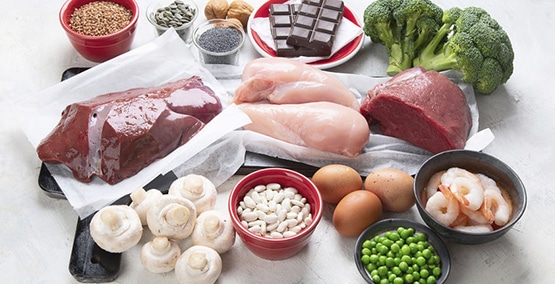Dietary causes of kidney stones and what you can do to prevent them
Which foods to avoid for kidney stones
-Kidney stones are caused by a variety of sources: frequent urinary tract infections, a blockage in the urinary system, or just "bad genes."
Importantly, an unhealthy diet can also make children more likely to develop kidney stones. Drinking too little water or drinking the wrong types of fluids, like soft drinks or drinks with caffeine, can cause certain substances in the urine to become too concentrated. In the same way, too much salt in the diet can contribute to more chemical elements in the urine to form stones.

Preventing Stones
Drinking enough fluids each day is the best way to help prevent most types of kidney stones. Although water is best, there has been some literature that suggests citrus drinks (adding lemon to water or drinking lemonade) can help as well.
Water
How much water is enough? We recommend drinking enough water to produce about 2 liters or quarts of urine a day. And that takes about 8 8-ounce glasses of water a day. An easy way to judge is to drink enough fluid to make your urine as clear or light yellow as possible . But how much urine you produce depends on a variety of factors besides how much you drink. If you are very active, have a high salt intake or live or work in a hot environment you may produce less urine and thus have to drink more water.
Salt
Even if you aren't using the salt shaker at meals, extra sodium is probably hiding in something else you are eating! It's important to read nutrition labels and ingredient lists on the packaged products you buy to see how much sodium is in certain foods (lunch meats, soups and canned vegetables often have a lot). It's recommended for kids 9 and up to have about 1500 mg/day of sodium, with even less for younger kids.
Calcium
Calcium stones are the most common type of stones in both children and adults. Because of this, everyone thinks they need to cut out calcium in their diet to prevent these types of stones, but that's not the case. It is advised to continue to get the calcium you need, based on what is recommended for your child's age. It is more ideal to get the calcium from foods you eat rather than extra vitamins, since some studies have linked calcium supplements to kidney stones.
Because the calcium in stones is tied to another chemical called oxalate, those who have had calcium stones should limit foods high in oxalate. This includes things like spinach, rhubarb, nuts, chocolate and tea. We don't ask people to completely cut out the foods entirely, but instead to look closer at their diets and see if they eat something on the high oxalate list very commonly. If so, they should try to reduce their intake of that food.
Animal Protein and Uric Acid
Eating too much animal protein, such as red meat, poultry, eggs, and seafood, boosts the level of uric acid and can lead to kidney stones. A high-protein diet also reduces levels of citrate, a chemical in urine that helps prevent kidney stone formation. So, if you're prone to stones, limit your daily meat intake to an amount no bigger than a pack of playing cards.
Who Needs to Follow This Diet Advice?
Making sure your child (and the rest of your family) has enough fluid each day applies to everyone. And we all should be watching the extra salt in our diet as well. No one needs the stones or the high blood pressure that can result from too much sodium. But the other recommendations mainly apply to those who have already had stones, those who come from a family where kidney stones are easily formed or who have another disease (like Crohn's disease or a short gut syndrome) that make stones a more likely possibility.
In that case, the best way for a urologist to tell if any of these dietary changes would help is to have your child's stone evaluated to determine exactly what type of kidney stone your child has and to analyze a 24 hour collection of urine while he or she is on his or her normal diet.

